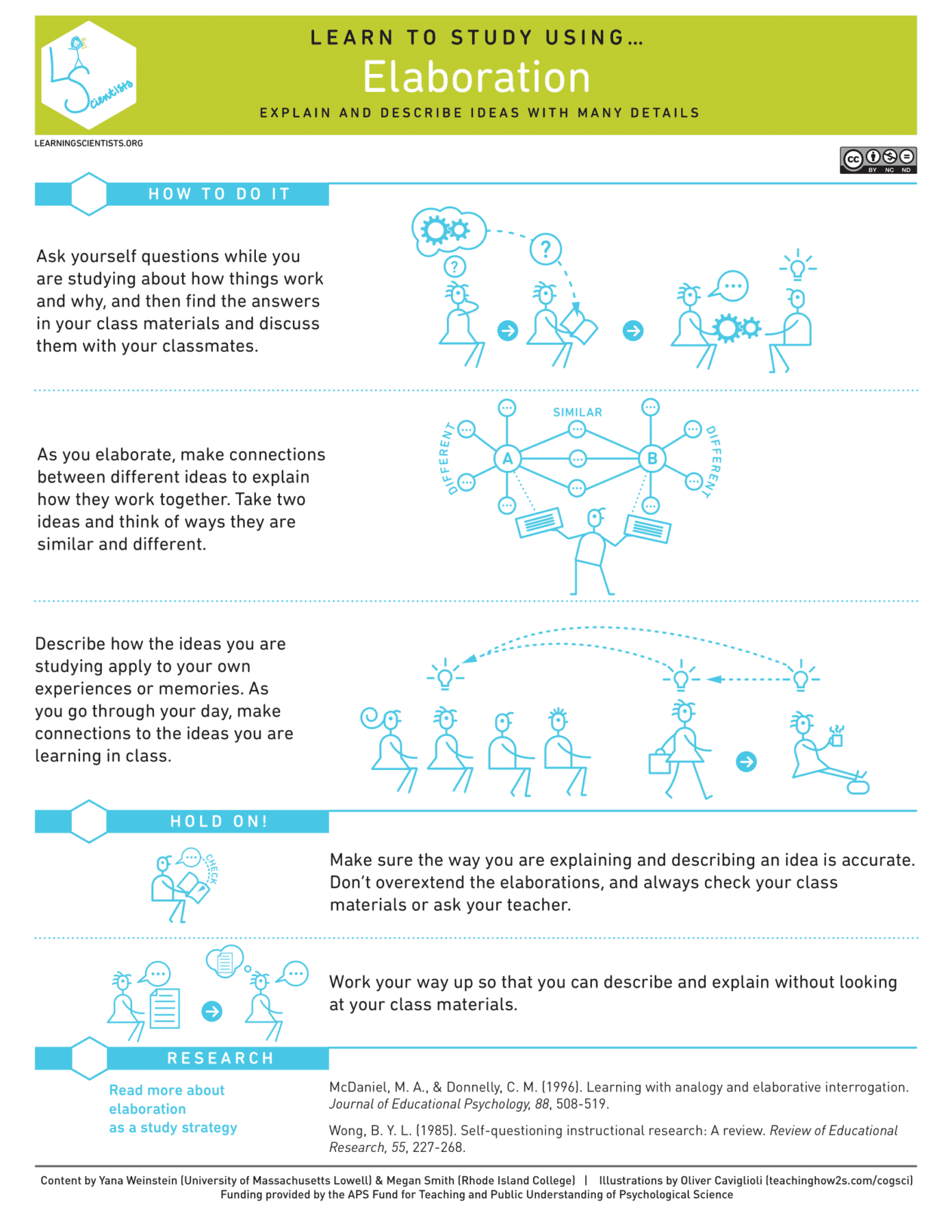Elaboration: what is it?
When you are elaborating, you are explaining and describing what you are revising with as many details as possible. You are looking for answers to why and how things work, and you are looking for connections between the material and other things you know.
Elaboration: why?
When you elaborate, you focus on the details and the connections between the material (what you are revising) and things in your own experience and knowledge (already safely in your long-term memory). These details and connections create “hooks” to help you remember the material you are revising.
Also, by working the material through your brain and doing something with it, you are strengthening the connections in your memory.
Elaboration: how do I do it?
How you elaborate depends on what it is that you are revising. Let’s say you are revising Biology, and you want to remember cell structures. You could ask yourself why animal and plant cells differ, and how they differ. Note the answers down, or say them out loud to yourself (or into a voice memo recorder). You could then ask yourself how they are similar, and why.
Always check that your elaborations are accurate after you’ve done them. Refer back to your notes, textbooks, or online resources. Correct and mistakes and repeat the elaboration with the corrections, otherwise you’ll risk remembering the incorrect material.
Elaboration: next steps
In the early stages of elaboration, it’s a good idea to have your notes around you to refer to. The eventual aim, however, is to get to the point where you can describe and explain accurately without the material in front of you.

